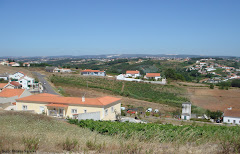The Master in Regenerating Intermediate Landscapes at ESARQ-UIC in Barcelona provides a unique methodology for regenerating complex contemporary landscapes that encompasses practices from urban design to landscape architecture at a scale between neighborhood and region. It focuses on the regeneration of urban sprawl, informal settlements and the preservation of cultural landscapes in order to build a more efficient and sustainable metropolis.
Intermediate Landscapes are consistent, functional and environmentally coherent areas made possible with specific tools and knowledge at the local to regional level. Developed and developing nations currently face an important challenge in urban design and planning: the management of intermediate landscapes triggered by the increased mobility and unprecedented urban growth. Standard planning cannot guarantee the efficiency and environmental quality of these new urban systems and open spaces. These landscapes, by their size, morphology and use, question the very notion of the compact city, as well as our common urban practices.
The need to regenerate the large suburban growths, the shopping centers and commercial strips; or to preserve agricultural land and river banks, strongly arises in our metropolitan regions. All these episodes no longer respond to local government boundaries, but to ad hoc constraints of functional, morphological or environmental character. For this reason, intermediate approaches, those between the local and regional level, are therefore needed to resolve conflicts and develop new opportunities.
The Master in Regenerating Intermediate Landscapes is devoted to providing the tools and methodology required to address these needs. This program is based on traditional core values of European planning, specifically: the concern and promotion of local identity and environmental values and the commitment to social equity. This program integrates current research by international experts into a comprehensive approach where economics and management combine with ecology and culture.
Through the training of skilled technicians this program seeks to answer some of the most challenging and urgent needs in urbanism. Among these are the regeneration of sprawl, the transformation of intercity roads into civic axes, and the preservation of cultural landscapes. Since the eighties, critical answers were being formulated in Europe and North America in response to environmental, economic, social and cultural challenges arising as a result of an unplanned and uncontrolled urban growth. We can confirm that at the present time there are sufficient theoretical and professional grounds to develop a coherent alternative model. In this context, the Master in Regenerating Intermediate Landscapes intends to contribute to the construction of more efficient and sustainable metropolis.
GOALS OF THE PROGRAM
The Master in Regenerating Intermediate Landscapes is of an academic nature and trains the students in an emergent field of urbanism and regional planning. This program is oriented to the specialization in an innovative disciplinary field where the contribution of international research and the direct knowledge of exemplary experiences are essential. According to this, the content of the program provides:
- Skilled methodological training in the regeneration of intermediate landscapes by means of their analysis, interventions, and integrated management.
- Scientific training based on the latest international research, which ranges from a global vision to a focused and specific knowledge.
- Opportunity to access, through field work knowledge of detailed model initiatives of local regeneration.
- A chance to gain a technical awareness of social balance, a rational use of resources, and the preservation of a local identity.
http://intermediatelandscapes.com














Sem comentários:
Enviar um comentário